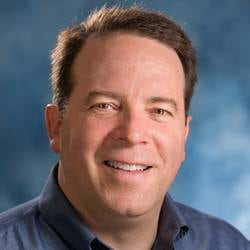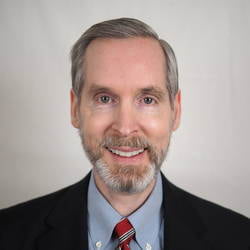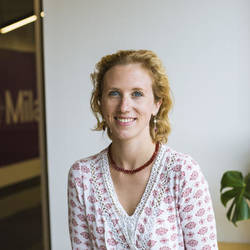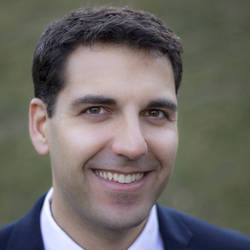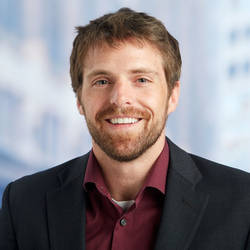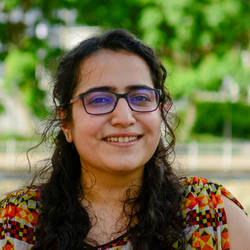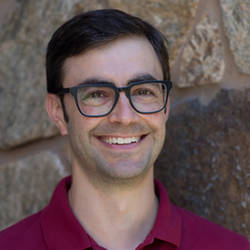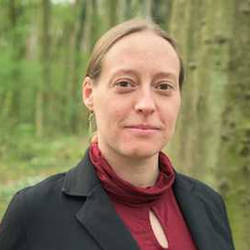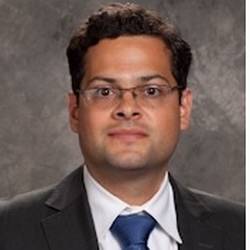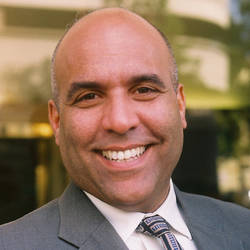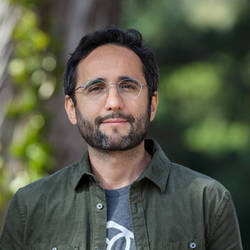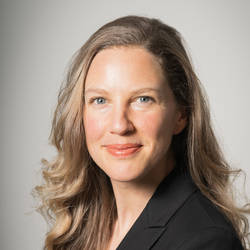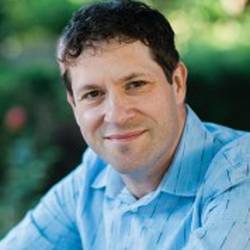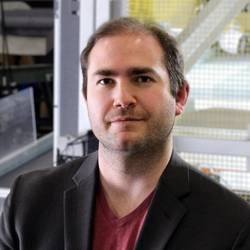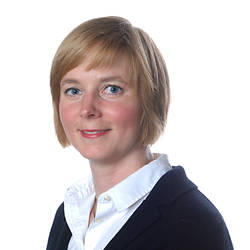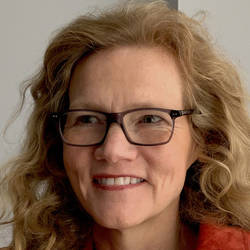Home Pages: PAW Business | PAW Financial | PAW Healthcare | PAW Industry 4.0 | PAW Climate | Deep Learning World
Agenda
Predictive Analytics World Climate 2021
May 24-28, 2021 – Livestreamed
To view the full 7-track agenda for the six co-located conferences at Machine Learning Week click here or for the individual conference agendas here: PAW Business, PAW Financial, PAW Healthcare, PAW Industry 4.0, PAW Climate or Deep Learning World.
Session Levels:
Blue circle sessions are for All Levels
Red triangle sessions are Expert/Practitioner Level
Workshops - Wednesday, May 19th, 2021
Full-day: 7:15am – 2:30pm PDT
This one-day session surveys standard and advanced methods for predictive modeling (aka machine learning).
Full-day: 7:30am – 3:30pm PDT
Gain experience driving R for predictive modeling across real examples and data sets. Survey the pertinent modeling packages.
Workshops - Thursday, May 20th, 2021
Full-day: 8:00am – 3:00pm PDT
This workshop dives into the key ensemble approaches, inc zluding Bagging, Random Forests, and Stochastic Gradient Boosting.
Full-day: 8:00am – 3:00pm PDT
Python leads as a top machine learning solution – thanks largely to its extensive battery of powerful open source machine learning libraries. It’s also one of the most important, powerful programming languages in general.
Full-day: 8:00am – 3:00pm PDT
Machine learning improves operations only when its predictive models are deployed, integrated and acted upon – that is, only when you operationalize it.
Workshops - Friday, May 21st, 2021
Full-day: 7:15am – 2:30pm PDT
This one-day session reveals the subtle mistakes analytics practitioners often make when facing a new challenge (the “deadly dozen”), and clearly explains the advanced methods seasoned experts use to avoid those pitfalls and build accurate and reliable models.
Predictive Analytics World for Climate - Virtual - Day 1 - Monday, May 24th, 2021
Amazon's vision is to be earth's most customer-centric company. This talk explores how the Alexa Hybrid Science team in Pittsburgh, PA applies a customer-centric lens to cutting-edge machine learning research. The team is responsible for developing on-device Alexa automatic speech recognition models to provide a faster, more reliable Alexa experience. Our research includes neural network compression techniques, end-to-end spoken language understanding and optimizing machine learning for edge devices
The quality of any machine learning or deep learning model depends on the values that define the model structure and corresponding hyperparameters. Many practitioners may find themselves investing countless hours manually searching for the right model and related hyperparameter values. Some use highly inefficient grid search methods. Others will use simple random sampling, which actually works fairly well. But alone, this method only offers a globalized search, and other sampling methods may be better suited to the job.
Why not use machine learning to automate the search for the best model?
This presentation details an advanced approach that uses both global and local search strategies that can be evaluated in parallel to ensure a quick and efficient exploration of the decision space. In the case of this presentation, a genetic algorithm (GA) will be examined for the global search because the selection and crossover aspects of a GA distinguish it from a purely random search. A generating set search (GSS) will be used to greedily search the local decision space.

Accurate, timely estimation of carbon emissions is critical for businesses and governments to take action on climate change. The Climate TRACE coalition aims to furnish these estimates for all major sources of emissions globally, on a near real-time basis. In this session we’ll give an overview of our work on estimating emissions from one of the most important sources of greenhouse gases, power generation from coal. The approach focuses upon detecting plumes using a variety of approaches, including multi instance deep learning.
The energy landscape is going through a drastic transformation. We are moving away from centralized power plants to more distributed energy resources such as solar, electric vehicles. This transformation makes it very difficult for the grid to handle and manage. Through this session we would explore how using data science and artificial intelligence, industries can optimize their energy usage while aiming to reduce costs and meet their sustainability goals. We'd be delving deeper into some of the forecasting and predictive analytics techniques we have created and measuring their impact. Also, we would share insights from real-life use cases of our customers and how AI has helped them monitor, control, and optimize their energy assets.
QuantumScape is developing solid-state lithium metal anode batteries to make long-range, mass market electric vehicles faster charging, longer range, and more affordable. Software has been a key enabler of rapid learning that has spanned new materials discovery through production quality control. QuantumScape has deployed many different models of varying complexity up to neural networks for image segmentation. Working under the constraints of smaller data (10s to 1000s of labels) in a small team of developers has taught the value of empowering expert users to label data and construct their own models.
Join your fellow practitioners in this interactive session where you can exchange approaches to shared challenges and hear how your peers are tackling similar issues.
Predictive Analytics World for Climate - Virtual - Day 2 - Tuesday, May 25th, 2021
Grab your real coffee and share experiences virtually with your peers to explore the new challenges of operating in a largely virtual world. Just like pre-show breakfast in a regular conference you’ll join a “round table” with seven fellow attendees and see where the conversation takes you.
In applying AI to fight climate change, we appear to have the irresistible force meeting the immovable object. In this talk, I'll present lessons that I've learned from work at Google where both AI and large-scale computation can be used for both climate mitigation and climate adaptation. The talk will include discussing carbon-aware computing, flood forecasting, and using machine learning to accelerate fluid modeling.
"Can I drive more efficiently?" was the question to be answered at the beginning of all data science efforts at Tracks. How can we accurately measure efficient driving of the thousands of truck drivers on the roads? This is a typical real-life question that is difficult to solve with ML methods. The answer to this question has sparked a number of follow up business questions that we are tackling with Tracks' complex AI system. In this session you will learn how Tracks' solution looks like, which ML methods are employed and which business questions are being answered. In a nutshell, how to turn ML into saved CO2.
As demand for carbon credits accelerates, there is an immense challenge in scaling the supply of carbon offsets. It’s hard to create credits that are additional, non-leaky, and durable, and it’s impossible for all but the largest landowners to participate in carbon programs. Over the last 10 years, SilviaTerra has built technology that generates comprehensive forest inventories of unprecedented resolution and scale, enabling measurement and payment for a comprehensive set of beneficial outcomes across the landscape. This new market is making carbon and other types of natural capital work for all landowners - for every acre, every value, every year.
Join your fellow practitioners in this interactive session where you can exchange approaches to shared challenges and hear how your peers are tackling similar issues.
Predictive Analytics World for Climate - Virtual - Day 3 - Wednesday, May 26th, 2021
Grab your real coffee and share experiences virtually with your peers to explore the new challenges of operating in a largely virtual world. Just like pre-show breakfast in a regular conference you’ll join a “round table” with seven fellow attendees and see where the conversation takes you.
Models generalize best when their complexity matches the problem. To avoid overfit, practitioners usually trade off accuracy with complexity, measured by the count of parameters. But this is surprisingly flawed. For example, a parameter is equivalent to one "degree of freedom" only for regression; it can be > 4 for decision trees, and < 1 for neural networks. Worse, a major source of complexity -- over-search — remains hidden. The vast exploration of potential model structures leaves no trace on the final (perhaps simple-looking) model, but has outsized influence over whether it is trustworthy.
I’ll show how Generalized Degrees of Freedom (GDF, by Ye) can be used to measure the full complexity of algorithmic modeling. This allows one to fairly compare very different models and be more confident about out-of-sample accuracy. GDF also makes clear how seemingly complex ensemble models avoid overfit, and lastly, reveals a new type of outlier -- cases having high model influence.
Deep learning models for forecasting and planning have shown significant promise for handling multiple variables, uncovering hidden patterns, and producing accurate forecasts. However, as one might expect, deep learning models are also complex and rife with pitfalls. Since these techniques often seem like a ‘black box,’ managers -- both technical and nontechnical backgrounds -- can find them hard to master.
In this session, Senior Data Scientist, Javed Ahmed will focus on the intuition behind various deep learning approaches, explore how managers can tackle highly complex models by asking the right questions, and evaluating the models with familiar tools.
Attendees at the Metis session will leave with the tools to:
● Identify types of forecasting applications that can benefit from deep learning
● Broadly understand deep learning approaches relevant to forecasting
● Understand pitfalls related to deep learning approaches, and why simpler models may work better
● Evaluate the results of a forecasting program
Climate change is increasing the frequency and severity of natural disasters. Natural catastrophes impact all critical infrastructures, and their resilience is essential for businesses and cities to operate effectively and safely. At One Concern, we combine machine learning and hazard modeling along with ML operational tools to better model the impacts of natural disasters on these critical infrastructures. By taking advantage of modeling, we can understand these potential impacts sooner to plan for and mitigate them. This helps to make our communities more resilient. This session will cover how One Concern applies Machine Learning algorithms to Natural Disaster Modeling.
Carbon Re is a micro AI and Climate Tech startup developing solutions to help Foundation Industry manufacturers, such as cement, steel, chemicals and glass, transition to net-zero. These industries are vital to the global economy, producing 75% of all the material for manufacturing and construction sectors however, today, they represent 21% of global GHG emissions. Carbon Re's first product, the Foundation Platform, is a software platform based on state-of-the-art process improvement techniques for foundation industries developed at the Institute for Manufacturing at Cambridge University (by our co-founder Daniel Summerbell) and built on cutting edge deep reinforcement learning expertise (by our co-founder Aidan O’Sullivan at UCL). Carbon Re's solution means that manufacturers don't have to choose between profitability and sustainability: they can cut their emissions today and improve their finances. This session will cover how Carbon Re combines Machine Learning and Process Improvement techniques to exploit the efficiency opportunities in manufacturing - which is the main path to decarbonisation in the short term.
Take a break or join your fellow practitioners in this interactive session where you can exchange approaches to shared challenges and hear how your peers are tackling similar issues.
About 30-40% of food produced worldwide is wasted. This represents a $165B loss to the US economy and poses major environmental problems: it is estimated that food waste contributes to up to 25% of all greenhouse gas emissions. This session explores how artificial intelligence can be used to automate decisions across the food supply chain in order to reduce waste and increase the quality and affordability of food. We focus our attention on supermarkets — combined with downstream consumer waste, these contribute to 40% of total US food losses — and we describe an intelligent decision support system for supermarket operators that optimizes purchasing decisions and minimizes losses. The core of our system is a model-based reinforcement learning engine for perishable inventory management. Our system is currently deployed across 220 supermarkets in the US (handling ~2% of US produce volume) and has led to waste reductions of up to 50%. We hope that this talk will bring the food waste problem to the attention of the machine learning community.
Predictive Analytics World for Climate - Virtual - Day 4 - Thursday, May 27th, 2021
Grab your real coffee and share experiences virtually with your peers to explore the new challenges of operating in a largely virtual world. Just like pre-show breakfast in a regular conference you’ll join a “round table” with seven fellow attendees and see where the conversation takes you.
Discover how early-stage climate tech companies are using machine learning to help meet their challenges.
Join your fellow practitioners in this interactive session where you can exchange approaches to shared challenges and hear how your peers are tackling similar issues.
Methane, the primary component of natural gas, is responsible for 15% of global warming. Our mission of finding and stopping greenhouse gas emissions at huge scale is a critical step towards controlling climate change, but it also presents unique challenges. And, as a small startup, navigating the trade-offs between speed, accuracy, and cost in our data pipeline can often be the difference between survival and failure. In this talk, we will examine the difficulties ML pipeline design in cases where information, time, and money are constrained, and how to do so while hiding the sausage-making from our customers, who just want to know where their equipment is leaking, and want to know fast. By using a lean, iterative approach that involves input from every department, including engineering, operations, and business development, we stay focused on creating analytics that maximize value while reducing risk to the company.
Take a break or join your fellow practitioners in this interactive session where you can exchange approaches to shared challenges and hear how your peers are tackling similar issues.
Globally, more than $200 billion worth of recyclable materials goes unrecovered annually. The economics and efficiency of identifying and sorting paper, plastics, metals, and other recyclables from the waste stream creates a major challenge for material recovery. In recent years, the waste industry has also faced stricter international quality standards for contamination-free imports of recycled materials, leaving the industry in search of cost-effective alternatives to meet these requirements. COVID-19 then forced many businesses to suspend recycling operations due to concerns for worker safety. Simultaneously, the pandemic increased demand for high-quality recycled feedstock to overcome supply chain interruptions and shifts in raw material availability.
Learn how AMP Robotics’ technology, which applies computer vision and deep learning to identify and differentiate recyclables found in complex, mixed material streams, is helping the waste industry meet these challenges by modernizing recycling—improving material quality, ensuring worker safety, increasing productivity, lowering costs, diverting waste from landfill, and reducing greenhouse gas emissions—while increasing overall rates of recycling and resource recovery.
Predictive Analytics World for Climate - Virtual - Day 5 - Friday, May 28th, 2021
Join our panel to find out how established industrial companies are using machine learning to address climate challenges.
Join your fellow practitioners in this interactive session where you can exchange approaches to shared challenges and hear how your peers are tackling similar issues.
Financial institutions are playing an increasing role in the low-carbon transition by taking steps to accurately estimate, price, and disclose future climate risk. By quantifying their exposure to climate risks, financial institutions can more effectively allocate investments, avoid ‘stranded’ assets, and track adherence to Paris Agreement goals and shareholder commitments. However, it remains difficult for these institutions to assess climate related risks across a portfolio of assets and across different benchmark warming scenarios.I will cover large scale data transformation approaches as part of an end-to-end framework for quantifying annual, asset-level climate risk over multiple climate hazards including wildfires, inland flooding, and heat waves using simulations from global climate models participating in the Coupled Model Inter-comparison Project Phase 6 (CMIP6).We will be discussing techniques to quantify forward looking climate risk from 2020 to 2050 under multiple climate scenarios such as high-emissions (SSP5-8.5) and medium-emissions (SSP2-4.5) warming scenarios. I will also showcase intermediate steps to make the climate simulations and spatiotemporal data interpretable and actionable. We will cover ways to harmonize near real time observations from ground measurements and satellite derived data with forward looking climate risk projections for acute physical hazards for high accuracy predictive modeling.
Take a break or join your fellow practitioners in this interactive session where you can exchange approaches to shared challenges and hear how your peers are tackling similar issues.
We give an overview of recent developments in physics-informed AI and big data that are transforming the prediction of climate and weather in applications ranging from climate risk modeling for insurance to real-time forecasting for energy. Traditional climate and weather models require computationally expensive simulation of physical laws on supercomputers with hours to days of processing time and have limited capacity to incorporate ground-truth data sources. The development of cloud-based AI workflows based on deep neural networks provides an alternative approach to develop physical emulators of climate and weather processes that are highly scalable and natively tuned to utilize the petabytes of remote-sensing, ground-based and numerical simulation data from Earth observation that are generated daily. We present work that we are doing at Terrafuse AI, a startup out of Berkeley National Lab, to develop an AI-native climate risk and forecasting platform for problems ranging from high-resolution mapping of wildfire risk in California to real-time wind forecasting for aviation and renewable energy.

